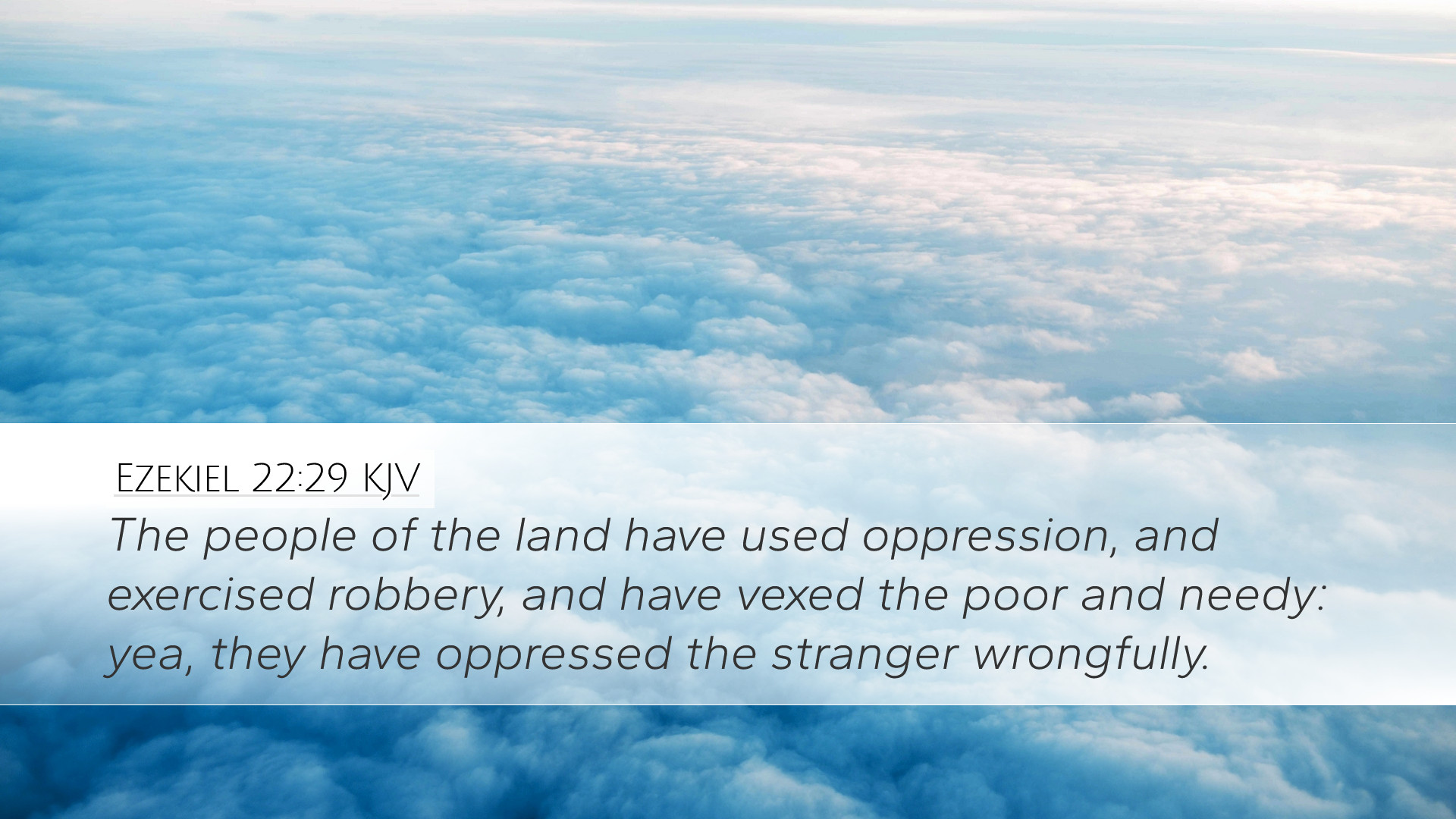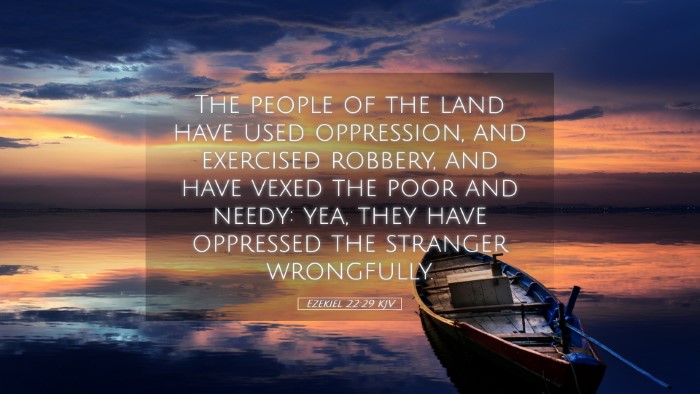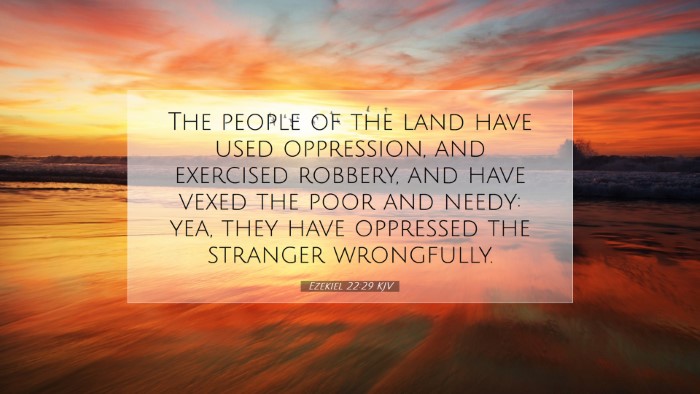Bible Commentary on Ezekiel 22:29
Ezekiel 22:29: "The people of the land have used oppression, and exercised robbery, and have vexed the poor and needy: yea, they have oppressed the stranger wrongfully."
Introduction
This verse from the book of Ezekiel presents a profound indictment against the people of Israel for their moral and social failings. The prophet Ezekiel, called to deliver messages from God during the Babylonian exile, uses this verse to highlight the pervasive injustices that had permeated society. The following commentary synthesizes insights from Matthew Henry, Albert Barnes, and Adam Clarke to illuminate the significance of this verse and its implications for contemporary readers.
Analysis of the Text
The phrase "the people of the land" refers specifically to the common folk of Israel, rather than the leaders or elite. This highlights that societal oppression often stems from collective attitudes and actions, not merely from those in power.
Matthew Henry's Insights
Matthew Henry emphasizes the community's moral decay, pointing out that they are guilty of multiple injustices:
- Oppression: The systematic mistreatment of individuals has become normalized.
- Robbery: The act of stealing or taking unfair advantage, indicating a lack of integrity.
- Neglect of the Poor: There was a disregard for those in need, revealing a failure of compassion among the populace.
- Marginalization of Strangers: Such behavior towards foreigners illustrates xenophobia and a lack of hospitality, which were particularly condemning in the context of Israel's covenantal obligations.
Albert Barnes' Commentary
Albert Barnes expands on the sociopolitical context of Ezekiel's prophecy by noting that these actions reflect a disregard for the law of God. He points out that:
- The Divine Mandate of Justice: God’s law requires fairness in all dealings, particularly with the marginalized.
- Consequences of Moral Decay: Such practices lead to societal breakdown; Barnes emphasizes that as oppression grows, so does the inevitable consequence of divine judgment.
Barnes also discusses the theme of accountability, suggesting that every individual within the community shares responsibility for the societal norms that permit such injustices to flourish. He asserts that God desires justice over mere ritualistic worship.
Adam Clarke's Interpretation
Adam Clarke provides a unique theological perspective, analyzing the nature of sin as multifaceted, particularly highlighting:
- Collective Sinfulness: Clarke notes that the collective behavior of the people illustrates a profound spiritual malaise, where sin becomes systemic rather than individual.
- God's Claims on Justice: Clarke reminds readers that God has a vested interest in justice, and the oppressors are acting against His will.
Clarke also encourages theological reflection on the implications of such behavior in contemporary society, calling for self-examination among believers to ensure they are not complicit in injustices.
Theological and Practical Applications
This prophetic message from Ezekiel serves as a sobering reminder for today’s believers, especially for pastors, theologians, and Bible scholars. The lessons drawn from Ezekiel 22:29 can be categorized into several key areas of application:
- Social Justice: The call for justice is a central theme in the Bible. Pastors and church leaders are reminded to advocate for the oppressed and disenfranchised within their communities.
- Moral Integrity: Individuals are urged to reflect on their own actions and societal norms, ensuring they align with biblical principles of justice and mercy.
- Community Responsibility: The idea that oppression is often systemic reinforces the need for collective responsibility in addressing societal issues, promoting the church's role as a catalyst for change.
- The Nature of God: Understanding God as a just and righteous being leads to deeper worship and a commitment to living in accordance with His will, fostering compassion and integrity.
Conclusion
Ezekiel 22:29 serves as a poignant reminder of the ethical and moral obligations that accompany faith. Through the combined insights of Matthew Henry, Albert Barnes, and Adam Clarke, readers are challenged to confront the realities of injustice both in biblical times and in contemporary society. As scholars, pastors, and students of the Word engage with this text, it calls for a faithful commitment to justice, integrity, and community responsibility—a mandate as relevant today as it was in the time of Ezekiel.


